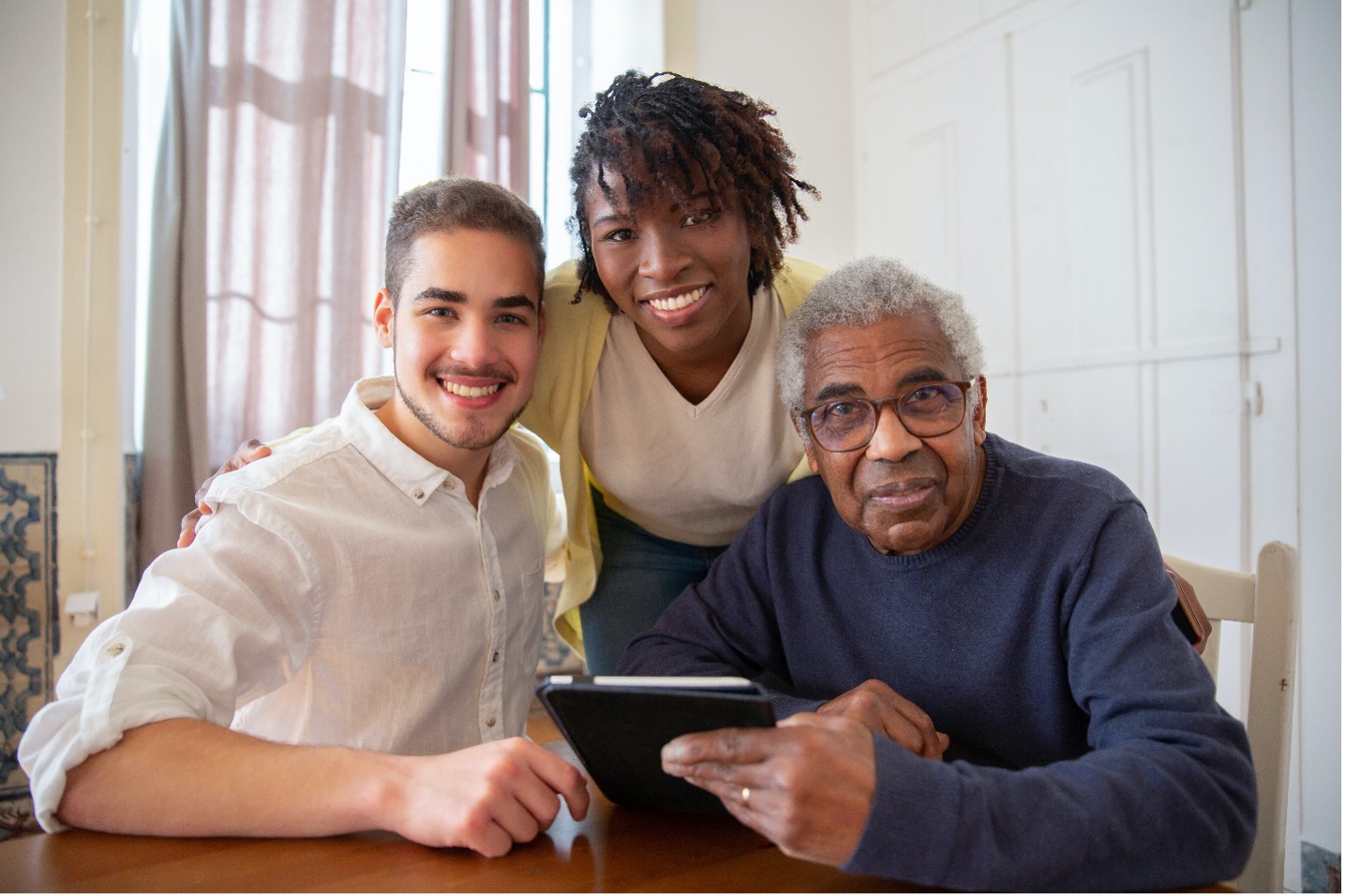The increasing population of aged people is not just a challenge for government institutions and policymakers but for everyone related to them in the house and outside. As the aging population increases, so does the need for better and more accessible healthcare and infrastructure to support their movement. Caring for the elderly requires a proactive and thorough approach at the national and domestic levels.
When loved ones reach old age, they need your care and support to get through the later period of their lives. They no longer have complete control over their body and mind; therefore, they might be exposed to the risk of harming themselves or the people around them.
However, taking care of your senior loved ones is not limited to providing them with healthy meals; a lot more can be done to ensure their health, safety, and comfort.
If you have an elderly in the house needing support, here are some tips for caring for them and enhancing their comfort.
- Provide home care
The first advice you will get from people who have taken care of their older adults is to provide yours with home care. Ensure the presence of a helper around them at all times to give them any assistance they need, even at odd times.
In old age, people get very unpredictable regarding their health status. They can catch physical health problems without any warning. If they are living under home care, you can immediately provide them with medical assistance.
- Go for aged care communities
In countries like Australia, where the population explosion for older adults is happening currently, aged care centers for the elderly are another reliable option.
It is estimated that in Australia, the population (aged 65 and above) will increase from 4.31 million to 6.66 million by 2041. This means this one country only is expected to witness more than a 50% increase in the number of older adults. It might be challenging to care for these many people under home care, especially if you are not living with your parents or have a hectic life.
Senior care centers provide care and support to older adults by providing them with a comfortable home-like environment away from home. One of the benefits of these care communities is that the adults who usually get lonely in their older age can find a like-minded company with similar circumstances. Hence, your older adults may regain their enthusiasm for life. Schedule best Dental Care Now!
- Give them your time
The finest gift you can give to your parents or older adults is a chunk of your time from your busy daily schedule. When you spend time with your elderly, they feel respected and cared for. They will feel that their experience and wisdom still have some need for you.
Spending a few minutes with them, talking to them about their day or if they need anything, boosts their mental health. In no time, you will find them waiting for you to have a chat with them.
If you have kids in the house, encourage them to spend time with the elderly. When older adults meet young people, they feel rejuvenated by being able to recall their youth.
During your visit to your elderly, try to find topics that interest them so they can wholeheartedly participate in this daily activity.
- Eat with them
It is not unheard of to find older adults ignoring their health and well-being when they are no longer young and energetic. Therefore, it becomes your responsibility to ensure they eat a healthy diet. Providing them with nutritious meals is not enough; you must ensure they are actually eating them.
The best way to check your elder’s diet routine is by sharing your meals with them. Try to eat with them often. If they can walk, encourage them to have one meal of the day with the rest of the family on the table.
Sharing meals with the family has many mental health benefits. Mutual discussions improve communication and bonding and let your elders know what is happening in the house. In this situation, older adults can play a beneficial role in conflict resolution by sharing their wisdom.
- Help them stay active
Even if you have lived an active and exciting life, losing the buzz and bustle of life in old age is natural. And it should not be surprising if you find your elderly in the same situation. So, you must encourage them to regain some of the activity of their previous life. It could be a physical activity such as exercise or walking daily for at least half an hour.
In the later stages of life, even a mild physical activity makes a lot of difference. Mild physical activity keeps older adults physically healthy, improves their balance, and reduces the risk of falls. A walk in the park every day is a great way to come across new people and enjoy social engagements that many older adults lose.
Maintaining social engagements have tremendous mental health benefits. When you find people you can connect to in a similar predicament, making a discussion becomes easier. These seemingly trivial activities are great stress-busters.
- Make changes in the house
Older adults are most sensitive to accidents such as falls and slips due to their physical and cognitive weaknesses. Therefore, it is better to look around the house to find all the elements that can pose a life threat to your older adults. It is essential to elder-proof your home just like you do when your baby becomes a toddler to ensure nothing in the house harms them in any way.
Some changes you must make in the house to make it safe for your older adults are:
- Make sure there is no water or clutter on the floor, which can cause the elderly to slip or trip
- Install railing in the bathroom for support and balance
- Place carpet on the stairs to increase friction and reduce the chance of skidding
Conclusion
Taking care of an older adult is very challenging if you are unprepared for it. But once you know what must be done, things become easier and more streamlined. Older adults depend on you for most of their needs, but even then, they don’t articulate it. Therefore, make sure you understand their needs without them asking.







